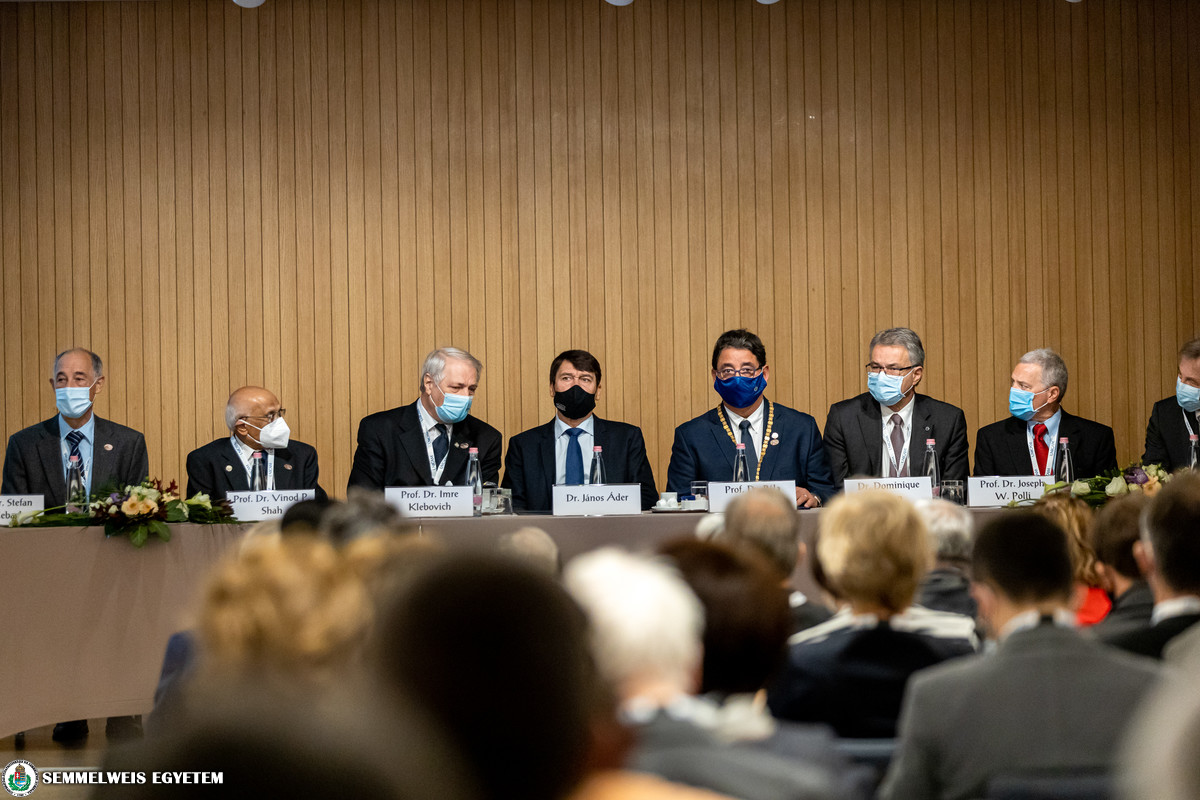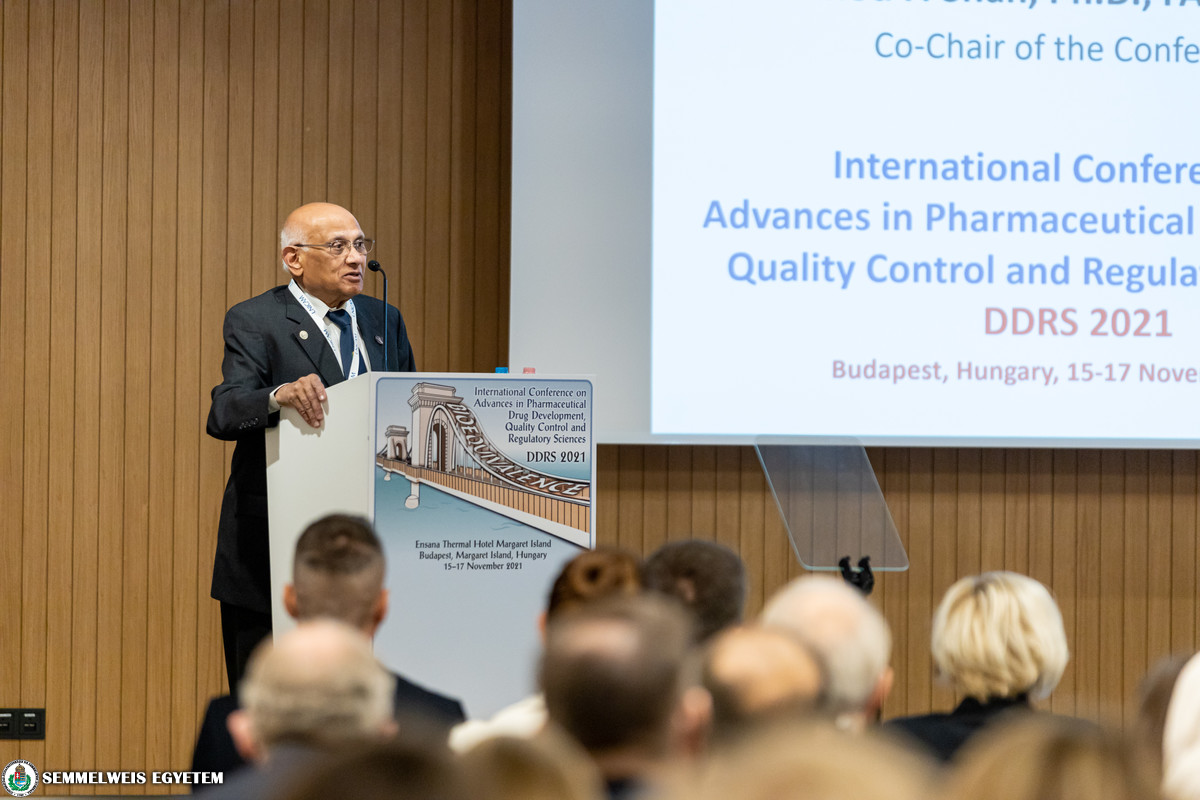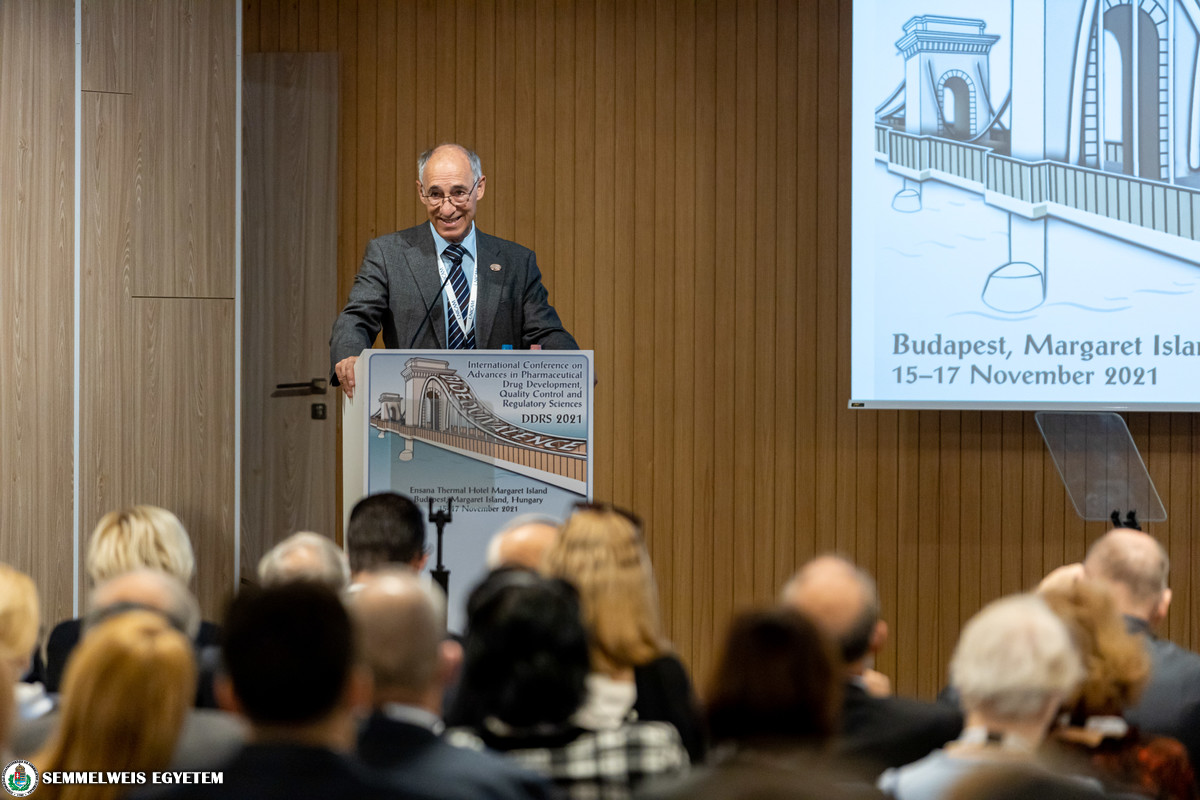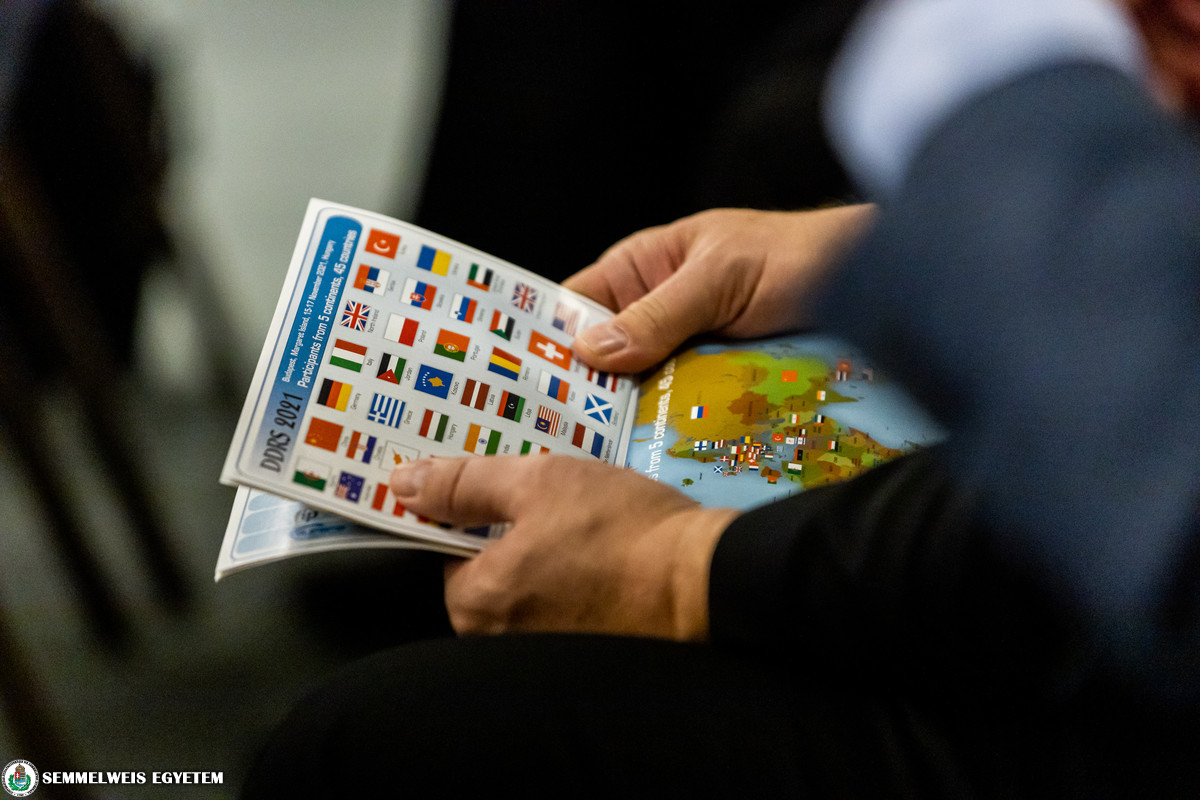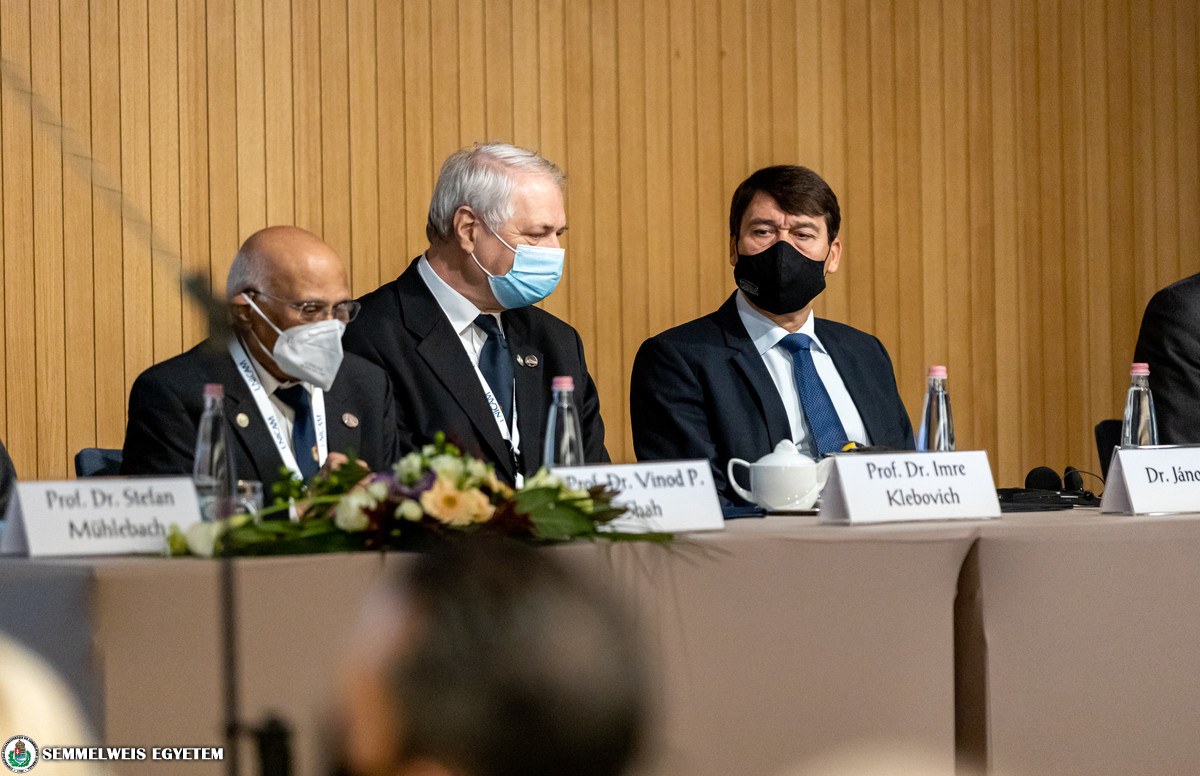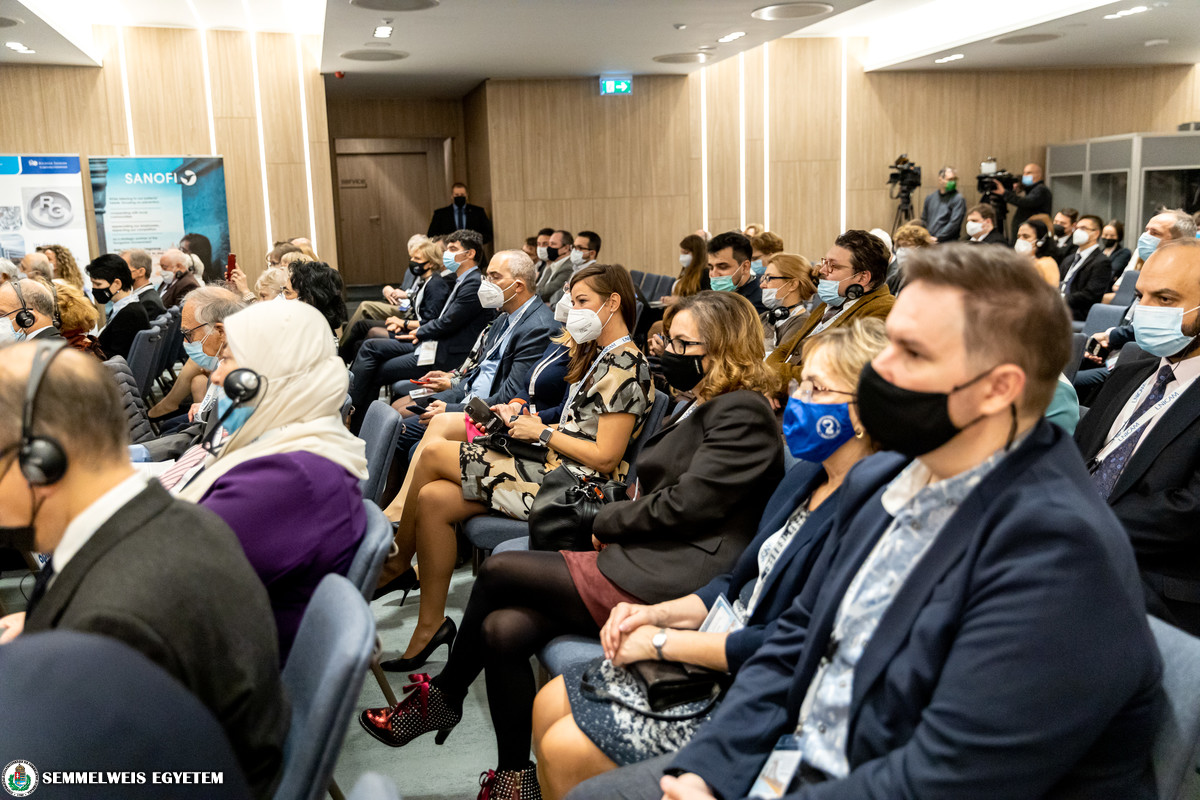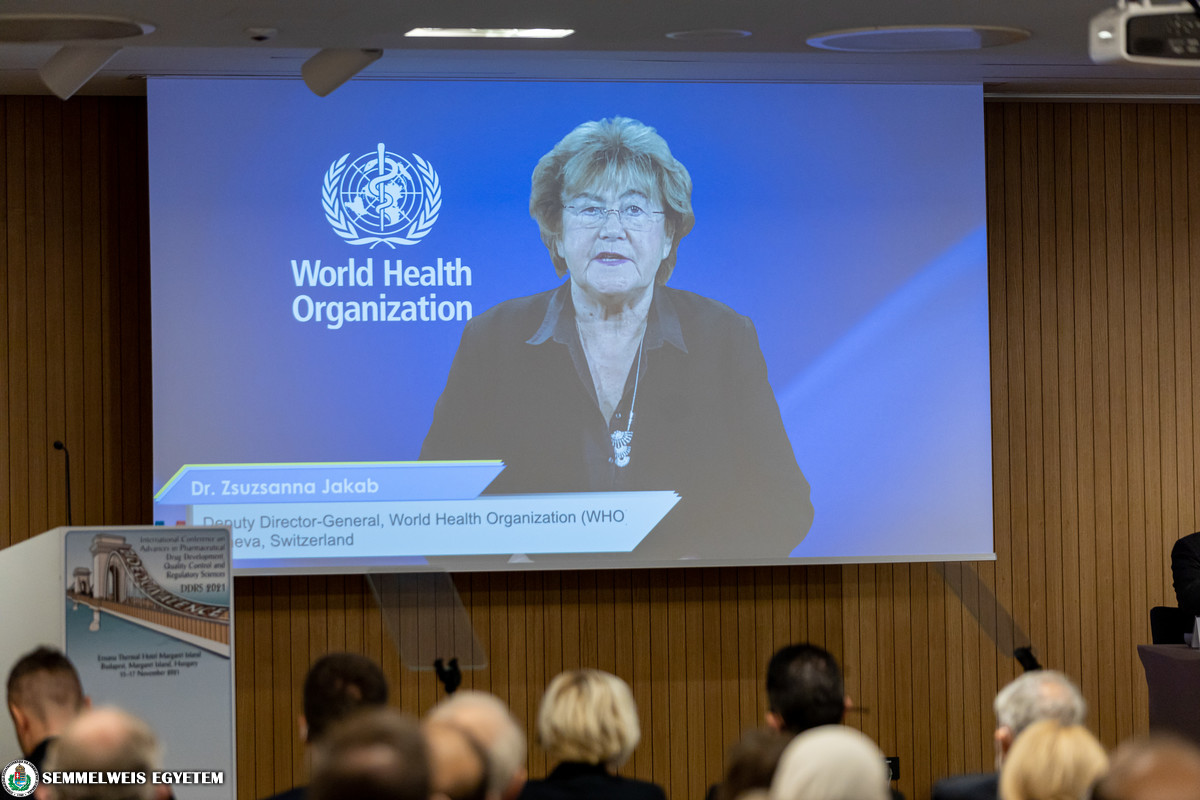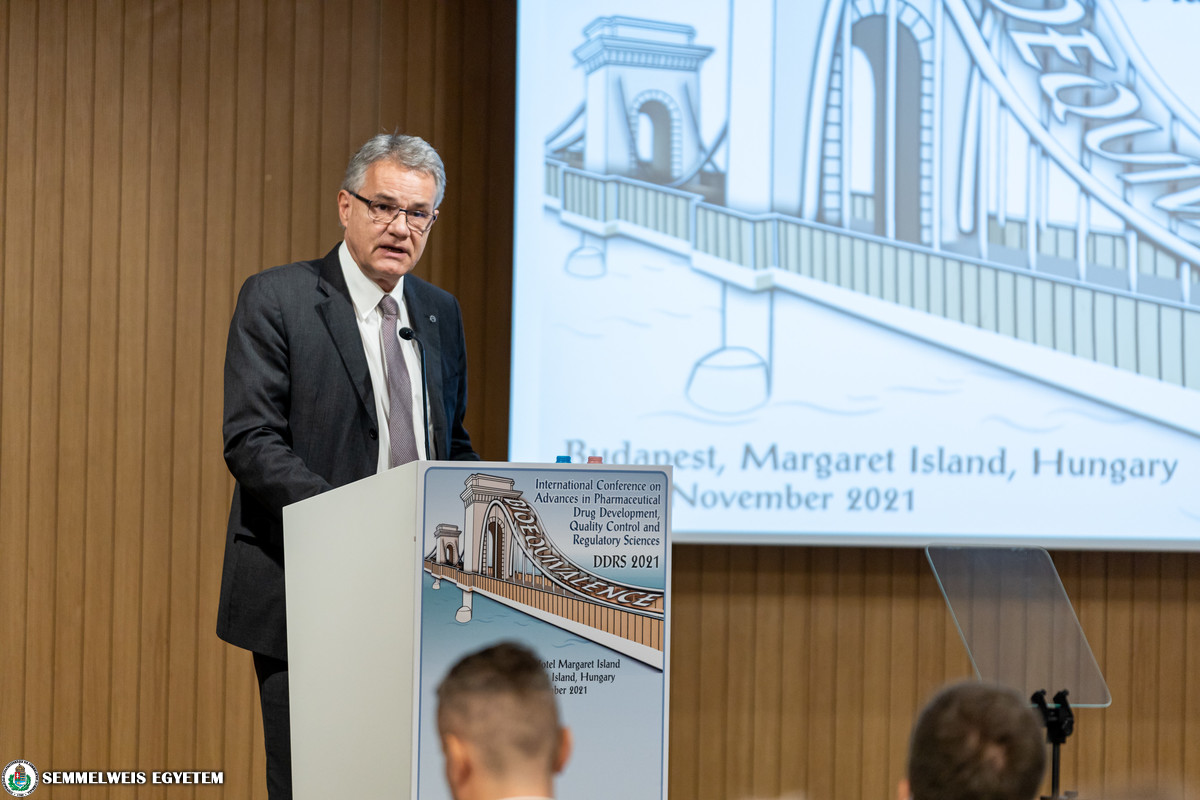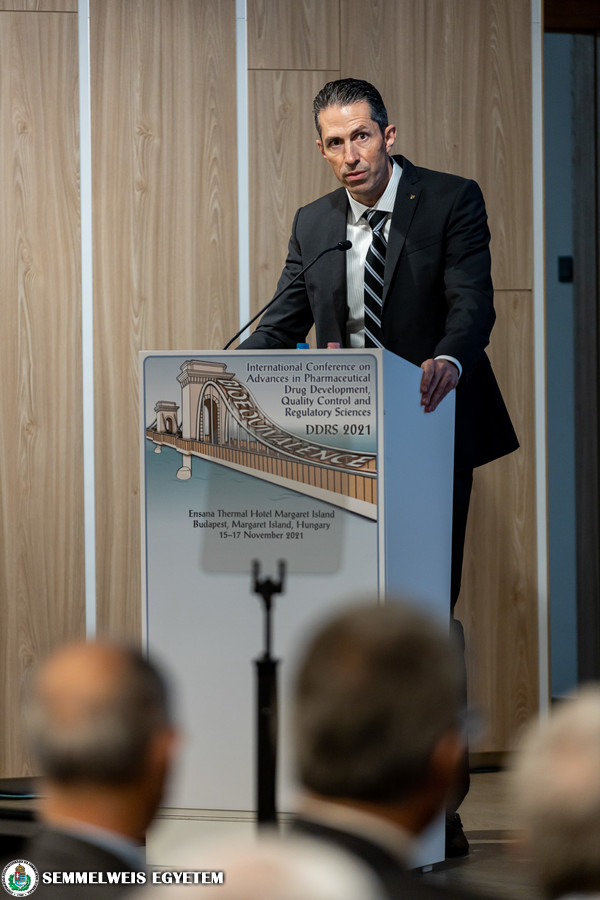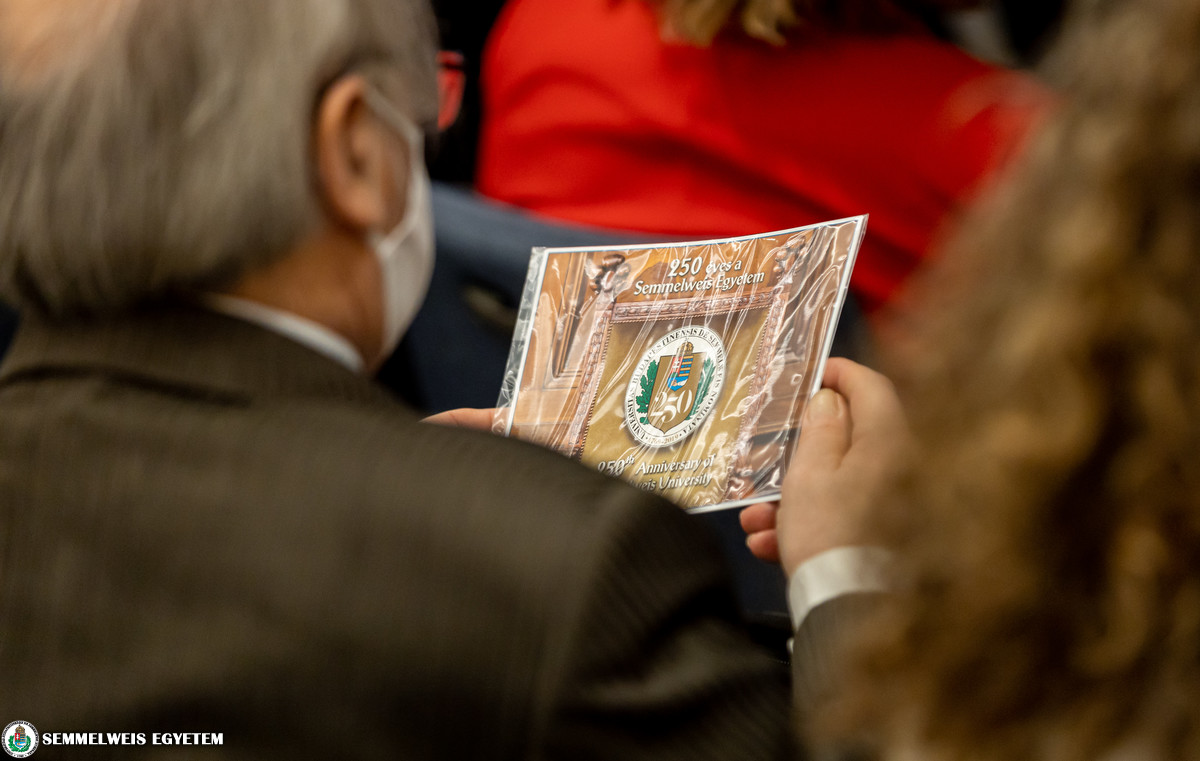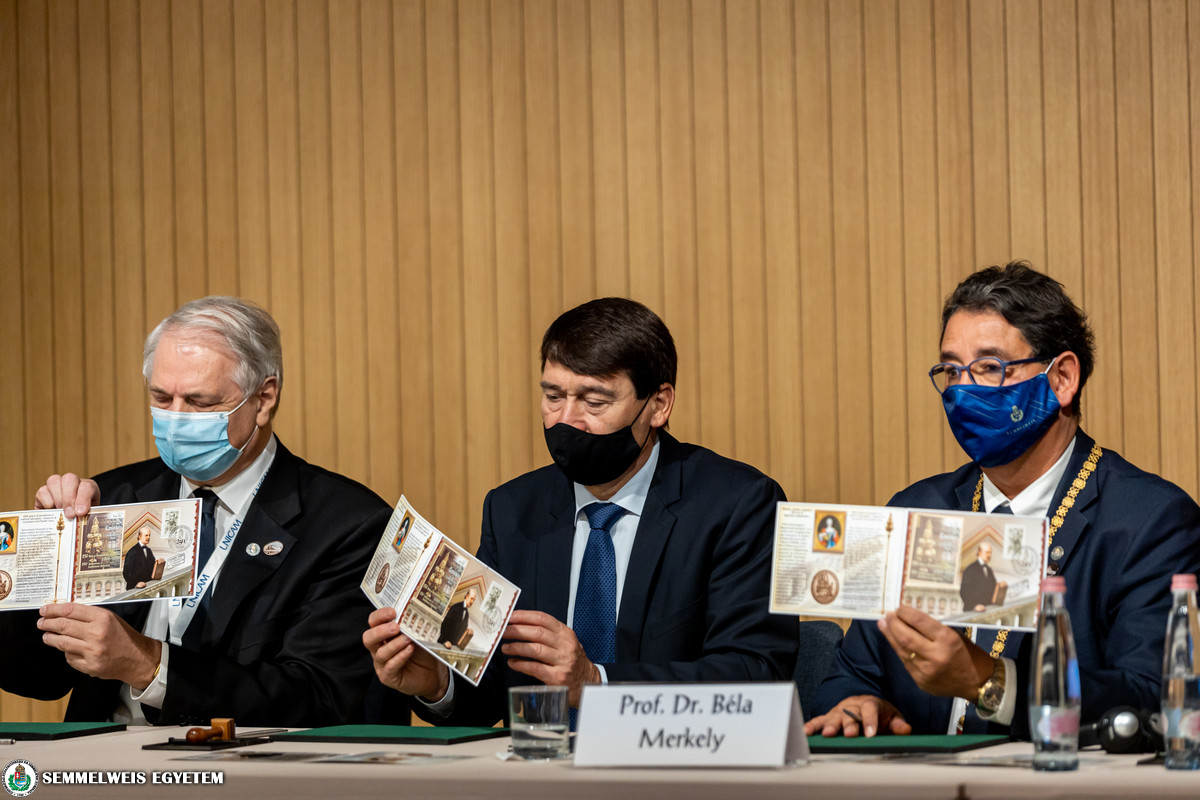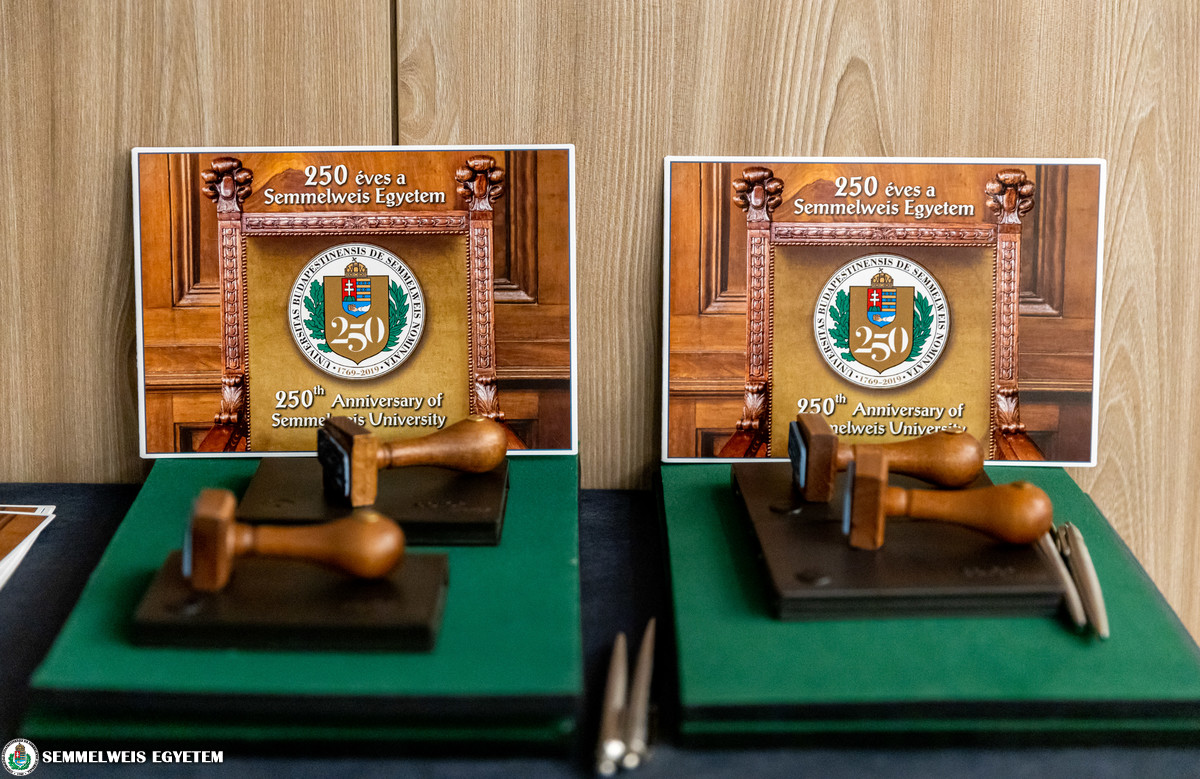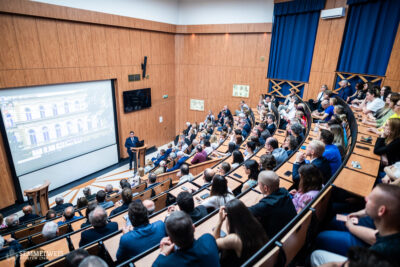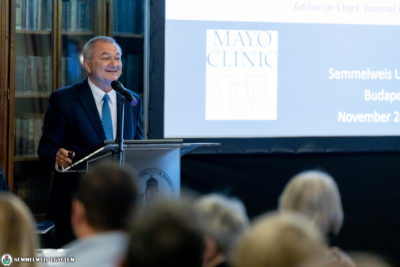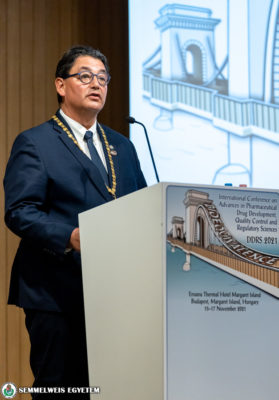
Rector dr. Merkely pointed out in his opening speech that research, development, and innovation comprise an important part of the university’s three-fold mission. One of the university’s main research areas is early diagnostics and therapy which is closely related to the topic of this year’s conference. “I am convinced that this international event will bring together the representatives of 45 countries and the greatest minds of different disciplines, such as pharmaceutical research and development, manufacturing and marketing authorization. The event is an excellent opportunity to introduce the latest scientific results and innovations” – added dr. Merkely. Rector dr. Merkely also pointed out that global pharmaceutical research has to adapt to the new challenges in order to provide the world’s population with innovative medicine. Phramaceutical professionals will need courage to see the challenges ahead and find the best way to adapt to them. The conference offers a great opportunity to present the latest research results and innovations, and will be an ideal forum to transfer international knowledge and to enable networking between professionals – emphasized dr. Merkely.
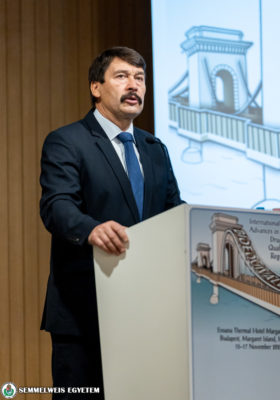
The chief patron of the event, President Áder mentioned in his opening speech that Hungary had considerable traditions in drug development and manufacturing and the country’s pharmaceutical industry is among the strongest in Europe. He cited the success stories of the Hungarian Pharmaceutical Industry: János Kabay, who developed a method to extract morphine and related compounds from opium poppy straw, the Hungarian Nobel prize winner Albert Szent-Györgyi and the company Richter Gedeon, which currently produces some 200 types of drugs sold in 80 countries.
We are really proud of the achievements of the Hungarian Pharmaceutical Research industry: the generic drug development and its newest biotechnological products.
– emphasized János Áder. He pointed out that as a result of the Covid-19 epidemic last year, even outsiders got the chance to get an insight into this area, that’s why it is key to share more information with the general public. „I believe that the invited guests of today’s event will have a great opportunity to open up fruitful conversations on current scientific topics, such as person tailored therapies, nanotechnology, drug delivery agents and biosimilar products – added János Áder.
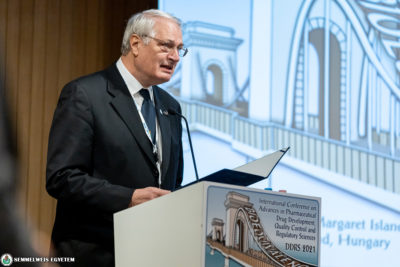
Dr. Imre Klebovich (professor emeritus, former head of the Pharmaceutical Department, co-chair of DDRS 2021) said that the most important European pharmaceutical event attracts some 200 healthcare professionals from over 45 countries of five continents, who are experts in the fields of pharmaceutical development, quality control and the regulatory challenges. He expressed joy that the event got back to operating with personal meeting and conferences. The conference had been postponed twice due to the pandemic outbreak last year, but the current event had been made hybrid, 8 presentations and 10 poster presentations were held online. „The event brings together representatives of worldwide recognized authorities providing an excellent overview of the current stage and the new directions of biological and non-biological complex compounds, regulatory issues of medical device combinations and bio- and nanotechnological research and vaccines” – added dr. Imre Klebovich.
Another co-chair of the event, dr. Vinod P. Shah, honorary doctor of Semmelweis University made a short summary of the pharmaceutical international conferences organised by Semmelweis University. The University held five workshops focusing on bioequivalence between 2001 and 2004, and three events between 2014-2018 related to topics „Regulatory developments of complex medicine”. This year’s event is aimed to be the next one in series – added dr P. Shah.
Dr. Stefan Mühlebach (third co-chair of the symposium, honorary doctor of Semmelweis University) also welcomed the fact that the conference this year has been shifted back to an in-person format. For most of the participants, this is the first live conference in two years. “I am glad to celebrate Semmelweis University’s 250th anniversary. As this is one of Europe’s leading higher education institutions, where a great number of scientists and young medical doctors began their studies – pointed out dr. Stefan Mühlebach.
Dr. Zsuzsanna Jakab (Deputy Director-General of the World Health Organization) talked about WHO’s “The WHO Triple Billion Targets” project. The “WHO Triple Billion Targets” set ambitious goals for better health for billions of people by 2023. The targets focus on 1 billion more people: benefiting from universal health coverage, better protected from health emergencies and enjoying better health and wellbeing. The Triple Billion Targets aim to significantly improve health through evidence-based interventions, strengthening of health information systems, and support for public health policies that take a holistic approach towards health. Dr. Zsuzsanna Jakab encouraged all healthcare professionals to collaborate in order to advance regulatory science, which provides everyone a greater access to quality healthcare services.
Dr. Dominque Jordan stressed the importance of education in his speech. Last year’s pandemic showed us how indispensable science and research have become in our life. The development of the pharmaceutical industry contributes to the fact that pharmaceutical professional receive quality education. These professionals will be able to provide safe, efficient and affordable medicine, healthcare technology and pharmaceutical care to patients. To achieve this, science, education and suppliers should work in close collaboration.
Joseph W. Polli (former head of the American Association of Pharmaceutical Scientists) gave a short introduction on the activities of the association. AAPS aims to establish alliances and partnerships across scientific organizations to advance the pharmaceutical sciences with the help of interactive programs, conferences, workshops and e-learning modules. Mr. Polli mentioned that more than 42 scientific associations are part of AAPS. The open forum has more than 70 thousand members.
Dr. Dieter Steinhilber (president of the European Federation for Phramaceutical Sciences) praised the achievements of the Hungarian scientists and pharmacists of the last decade, which contributed greatly to the EUFEPS’ activities. One of the main visions of EUFEPS is to manufacture more efficient and safer medicine. The pandemic period proved that medical research and pharmaceutical development should be considered top priority for maintaining health.
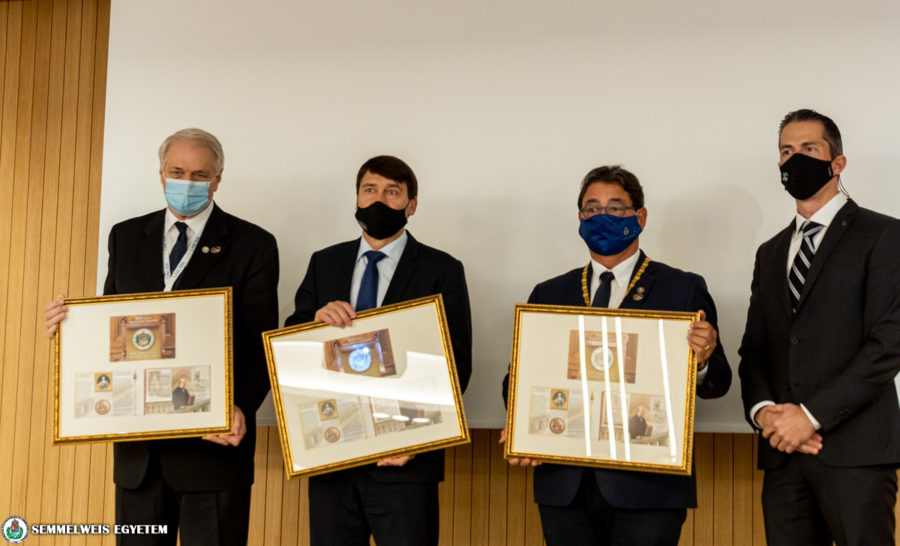
After the speeches, János Áder, dr. Béla Merkely, dr. Imre Klebovich and György Schamschula (Chief Executive Officer of the Hungarian Post) signed and stamped the special English-Hungarian commemorative sheet which was published by the Hungarian Post on the occasion of the 250th anniversary of the foundation of Semmelweis University.
Tamás Deme, Viktória Kiss
Photo: Attila Kovács – Semmelweis University
Translation: Norbert Lukács
